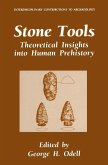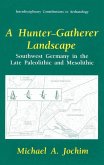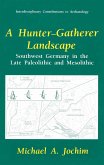Drawing data from a classic region for Paleolithic research in Europe, this book explores how early modern humans obtained lithic raw materials and analyzes the different utilization patterns for locally available materials compared with those from a greater distance. The author locates these patterns within an ecological context and argues that early modern humans selected specific mobility strategies to accommodate changes in subsistence environments.
Hinweis: Dieser Artikel kann nur an eine deutsche Lieferadresse ausgeliefert werden.
Hinweis: Dieser Artikel kann nur an eine deutsche Lieferadresse ausgeliefert werden.
`...this work has a lot to recommend it. It benefits from clear organization, a generally explicit exposition of approach, data and results, and a cogent synopsis of relevant environmental data. ...Blades' study has provided a useful theoretical framework through which to consider Paleolithic cultural groups, as well as data that can be employed for further testing. This is a welcome addition to the ever-expanding literature in the Western European Upper Paleolithic.'
Lithic Technology, 27:I
`Works on stone tools are often dry and rather uninspiring in the face of such enormous expectations, but by placing the lithics into a broader ladnscape and ecological context, this work makes a better read than most.'
Antiquity, 75:289
Lithic Technology, 27:I
`Works on stone tools are often dry and rather uninspiring in the face of such enormous expectations, but by placing the lithics into a broader ladnscape and ecological context, this work makes a better read than most.'
Antiquity, 75:289
`...this work has a lot to recommend it. It benefits from clear organization, a generally explicit exposition of approach, data and results, and a cogent synopsis of relevant environmental data. ...Blades' study has provided a useful theoretical framework through which to consider Paleolithic cultural groups, as well as data that can be employed for further testing. This is a welcome addition to the ever-expanding literature in the Western European Upper Paleolithic.' Lithic Technology, 27:I `Works on stone tools are often dry and rather uninspiring in the face of such enormous expectations, but by placing the lithics into a broader ladnscape and ecological context, this work makes a better read than most.' Antiquity, 75:289








